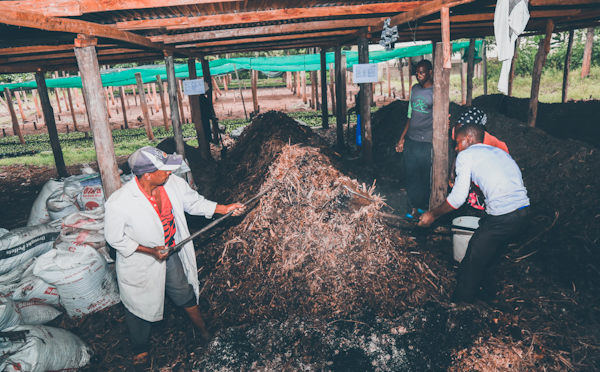A group of smallholder farmers from Kericho paid a visit to their counterparts in Meru at the instigation of their local farmers’ association. That was some five years ago.
While the trip was fun and adventurous, some of them wondered why so much money and time was being ‘wasted’ yet they could be taught the things they were going to learn right at home.
Hearing the murmurs as the bus meandered towards Nakuru, a young woman spoke up. “My parents, as a community, we have our own ways and we have our comfort zones. Some of our ways have worked, others need to be improved so that we and our children after us can prosper and not become beggars.”
She continued, “some of the ways of the people we are going to visit, might be what we need to infuse into our ways to achieve this objective. Besides, seeing is believing.” The bus broke into thunderous applause as the young woman sat down.
Later that evening, the group landed in a very cold part of Meru known as Michimikuru and for the next two days, they witnessed many new things, some of which had never crossed their minds. For example, they witnessed how household and animal waste was channeled to produce biogas, which was used to cook food and boil water while the resulting residue was put back to the farm as manure. As a result, there was no need to cut down trees to provide fuel. Indeed, the whole of Michimikuru was heavily forested.
When the Kericho farmers returned home, almost half of them tried the waste-to-biogas idea. Five out of the twenty who experimented became hugely successful. They, in turn, inspired others who were not on the trip to adopt the idea. Today, the Kericho village is popular for its biogas, and the thriving forests along rivers and streams and in between homes bear testimony to the sheer impact of that initial visit.
The above narrative, which is based on a true story, demonstrates the power of peer learning in accomplishing circular economy goals. Peer learning involves people, who are more or less at the same level of power but whose culture and level of knowledge may be dissimilar, learning from each other to better their experiences. It is often understated largely because people don’t like being smoked out of their comfort zones but we cannot say the same of its power to transform communities and improve economic fortunes.
And whereas we cannot dismiss the benefits of being taught theory in a class environment, seeing how it is done, practically, and being an apprentice of sorts under someone who is already doing it, holds greater power. As the world confronts great challenges such as resource depletion, climate change, pandemics, the rise of environmental refugees, growing urbanization, and heightening poverty, a circular economy holds the key to tackling these grave challenges and unlocking opportunities for the most vulnerable. The idea of a circular economy is that there is no waste. Waste, as used in this context, has a double meaning.
The first is that we should not take for the useful things we don’t need, for now, simply because they are available. We should choose to save them for the future. This applies, particularly to natural resources.
The second meaning is that waste that results from the use of materials should not be thrown away. As shown in a recently published Sustainable Inclusive Business Magazine, waste is not waste. It is a resource that can be reused, recycled, redesigned, or remanufactured and in the process, maintain the integrity of biodiversity and create opportunities, including jobs, all at the same time.
The role of government policy in midwifing the necessary action is the subject of conversations at various levels. Not to be ignored is the critical role of individuals and institutions who are implementing various aspects of the circular economy, sharing their experiences with their peers in a practical learning environment.
The budget allocation for these renamed departments should include peer learning both in the country and out of the country. In the end, peer learning could be the spark that ignites innovation and enterprise that makes a circular economy possible.
The author is Ebenezer Amadi – Program Manager, Sustainable Inclusive Business Kenya.
Khusoko is now on Telegram. Click here to join our channel and stay updated with the latest East African business news and updates.




